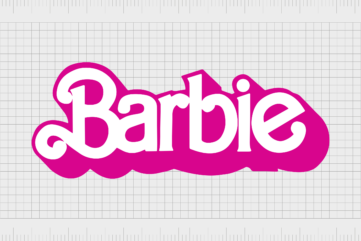How to sell yourself without selling out: The art of self-promotion

How often do you talk about yourself?
While there are plenty of people out there who love being the centre of attention, there are also those of us who prefer to stay out of the limelight. Too much self-promotion could easily come across as bragging – and that’s not good for your reputation.
The last thing you want is to start your social media profiles, begin establishing your personal brand, and discover that you’re coming off as a bragging, pompous, idiot. The overwhelming threat of “making the wrong impression” can convince would-be entrepreneurs, creative minds, and freelancers to avoid self-marketing entirely. However, this could mean that you miss out on valuable opportunities to boost your career.
While speaking highly of yourself might feel uncomfortable, it serves an important purpose. After all, if you’re not willing to sing your praises, who will be?
Effective self-promotional strategies are all about finding the balance between demonstrating your skills and boasting about them. As difficult as it can be to toe that line if you can get your promotional methods right, you could find that they open the door to promotions, new clients, and incredible opportunities.
When it comes to standing out in any marketplace, even individuals need to figure out how to successfully strut their stuff.

If you’ve got it, flaunt it: What is self-marketing?
Marketing yourself is a principle that follows the same concept of marketing a business or company. It’s about showing the world what you do best, so you can convince them that you’re the answer to their problems. Sometimes, self-promotion may be a strategy that a job-seeker uses to improve their chances of acquiring the ideal position. In other cases, freelancers or creatives might use self-promotional strategies to attract new clients.
The complex thing about self-promo strategies is that there’s a fine line between not knowing how to talk yourself up and accidentally sickening people with your showboating tactics.
At some point, we all must sell ourselves to someone. Whether you want to present yourself as the perfect new employee for that high-paying role, you’re hoping to make a name for yourself as an innovative entrepreneur, or you just want to convince that cute girl at the bar to go on a date with you.
The rub is that it’s hard to do self-marketing well. You don’t want to seem sleazy, but you need to convince people that you’ve got exactly what they’re looking for. This means figuring out the difference between self-promotional strategies, and shameless boasting.
Constructive self-marketing is about showing people your personal USP. This means demonstrating your value through facts, statistics, and results that highlight whatever makes you special. On the other hand, destructive promotional methods, like boasting are just about generating attention. When you boast, you don’t have anything to back up your claims, and the messages you send out are based entirely on your need for confirmation, rather than an inner passion or idea.
So, how do you make sure that you’re marketing yourself in a way that’s conducive to future success?

Before you begin marketing yourself: How to prepare for self-promotion
Self-promotion isn’t as easy as it seems. In fact, research into the concept of self-marketing indicates that it’s particularly difficult for women to talk about their prior successes without feeling uncomfortable.
Of course, that doesn’t mean you should avoid self-promo strategies entirely. Instead, it might be helpful to create a plan of action and prepare for your promotional methods, before you put them into place. Here are a few tips on getting ready for the spotlight, before you discover how to sell yourself.
1. Sign up for the right social accounts
While there are plenty of promotional methods available that focus on improving your reputation offline, like networking or custom-made CVs, many of today’s biggest stars find that they have the best success with self-marketing on social media. As with many things in the marketing world, you’ll need to determine which channels are most likely to get you the right attention, before you create your profiles.
For instance, Facebook is currently home to more than a billion people each month, so it’s a great place to start with your promotional methods. However, you might also decide to expand your reach into other, more niche groups too. If you’re trying to draw attention to your creative accomplishments as a self-employed artist, for instance, you might get a DeviantArt, Pinterest, Instagram, or even a Snapchat profile too. Each of these platforms is designed more exclusively for “visual” businesses.”
2. Know your values
Before you begin promoting anything, including yourself, you need to have a vision of the kind of reputation you want to build. As soon as you begin to brand yourself with creative media, online content, and social posts, you’ll begin to develop an identity for yourself that your future clients, investors, or employers will consider whenever they do business with you.
Make sure you know what you want people to associate your name with. For example, do you want to be seen as laidback and funny? Or is it more important for you to appear as a professional? Knowing your values will help you to choose the right image and tone of voice for your personal brand.
3. Be valuable (but don’t be someone you’re not)
When it comes to figuring out how to sell yourself, you’ll need to make sure that you have something to sell. Everyone has their own specific skills and talents, and the promotional methods you choose will often depend on how you want to present yourself to the world. Ideally, you should be looking to fill a gap in the marketplace. For instance, if you’re a graphic artist, what makes you more appealing than your competitors? Maybe you offer content marketing alongside website design, or you have specific accolades in the artistic world.
While no-one likes being “sold” to, everyone wants to have their problems solved. Look for a way that your services can make the world a better place. However, make sure that whatever you do, you’re always “authentic”. Don’t try to be someone you’re not, as human beings are often more perceptive than you think – they can see through insincerity in a heartbeat.

How to sell yourself: Self-promotional strategies that work!
Both in the business world, and the personal world, marketing can feel a lot like fishing. You’re essentially dangling bait into the water and waiting for the right person to come along and take a bite. While some people will cast a wide net to get the response they’re looking for in their self-promotional strategies, others take a far more refined approach.
Often, the key to good self-marketing is making sure that you generate enough attention, without being overly obnoxious. You want a solid online presence, a good network, and a strong offline strategy to ensure you have access to as many opportunities as possible. Here are a few methods that could help you to get started.
1. Supplement social media with digital marketing
As mentioned above, social media may be one of the most powerful self-promo strategies available today, but it’s only one of the arrows in your quiver. A comprehensive marketing mix that includes regular vlogs, podcasts, and even written online content can all help to make your personal brand more compelling and attract the eyes of the right people.
Try supplementing your social strategy with content that your followers will want to engage with and share. For instance, you can post brainteasers on Facebook, share jokes on Twitter, and link everything back to interesting content on your blog.
2. Connect with thought leaders
While platforms like LinkedIn and Facebook have made it undoubtedly easier to connect with industry leaders in your space, that doesn’t mean you shouldn’t consider networking in other areas too. There are plenty of specialist forums and websites specifically designed for certain groups. Seek out places where you might be able to showcase your expertise outside of social media. For instance, niche blogs and e-magazines are a good place to start.
3. Brand everything you do
While it’s easy to assume that a “brand” is something reserved for big enterprises and companies, the truth is that everyone has a brand – even if they’re not aware of it. Your brand is essentially your reputation, or the perception that other people have of you, or your company. When you’re engaging in personal promotional methods, it’s up to you to make sure that your brand is sending the right message to your followers.
Each of the strategies you use to sell yourself, from your CV to your website and business cards, should all represent your unique “brand”. This means thinking carefully about the tone of voice you use, the colours you select, and even the typography that works for you.

4. Stand for something
There’s a reason why storytelling has emerged as such an important marketing technique. Today’s customers want to get to know the brands they work with before they buy from them. If you can show the people you want to captivate with your self-marketing methods that you stand for something important, this could make it easier for you to earn the right attention.
When planning your self-promotional strategies, ask yourself whether there are any important causes you should be getting involved with in your area. For instance, if you’re trying to sell yourself as an environmentally-friendly freelance artist, could you get involved with events for sustainability, and attend relevant conferences and seminars?
5. Consider having a “pitch”
Finally, since self-marketing is all about learning how to sell yourself, it makes sense that you’d have your own pitch. You should have started planning your self-promo strategies with a good understanding of your “USP”, or what makes you special. Think about how you can pitch yourself to potential clients, employers, or investors while showing your unique identity.
Your pitch will probably include several different elements, including presentations, evidence of your work, and more. If you’re concerned about the awkwardness of marketing yourself, try imagining that you’re selling a product, rather than a person.

Singing your praises: Finding the right tone for self-marketing
Self-promotional strategies make a lot of people feel uncomfortable, but they could be the key to countless opportunities in your personal and professional life. The question for most people isn’t whether you should be marketing yourself, but how you’re going to attract attention, establish influence, and gain clients.
Self-promotion blends the line between branding and boasting, and it’s important to know when confidence turns to cockiness. The following advice could help you to keep your tone on track when you’re selling yourself. This way, you can ensure you portray a personality that resonates with the right people.
1. Do your research
As we covered in the section above, there are plenty of platforms for self-promotion out there. However, whether you’re showcasing your self-promotional strategies in person at a local networking event, or you’re speaking to influencers on LinkedIn, it’s important to remember that different spaces come with their own unique audience.
If you’ve ever had to create a presentation before, you’ll know that researching the audience beforehand can be the key to success. The more you know about who you’re talking to, the more you can adjust your pitch to suit their interests and expectations. When you’re in a face-to-face interaction, you can read a person’s body language, and react to their responses. Online, you’ll need to rely on the insights of analytics programmes to help you optimise for the future.
2. Don’t just “act” the expert – be one
Self-marketing is all about showing people that you’re the best at what you do. That means going above and beyond to demonstrate your position as an industry expert. For some people, this will mean constantly curating and sharing content on social media that’s relevant to their chosen niche. For others, it might be important to visit local networking events and conferences.
Taking the opportunity to speak about your areas of expertise at a conference could be a particularly great way to improve your chances of success beyond the virtual world. Just make sure that anything you share with your followers is well-researched.
3. Find and follow the right groups
Networking is one of the most crucial self-promo strategies out there. However, if you haven’t been in the industry for long, or you’re not familiar with the practice of personal branding, you might not know how to get started. The good news is that social media makes it easier to find groups that might be relevant to your search for attention.
Look on LinkedIn for thought leaders in your industry and try following some of the people that they’re connected to. Check out Twitter, Facebook, and even Instagram for groups related to keywords that you want to be recognised for. The more you connect with the right people, the more your promotional methods will pay off.

4. Be interesting
No-one wants to watch a podcast that’s just 60 minutes of you describing how great you are. However, if you can show off your skills and provide your audience with something interesting or informative to listen to at the same time – then you might just get their attention. When you’re creating content for self-promotion, it’s important to remember that no-one enjoys being sold to in this marketplace.
Instead of just rattling off impressive statistics about your performance or listing off adjectives that you think are perfect for describing you, tell a story. Engage your audience with something they want to learn about. Telling your personal story can help you to appear as a more authentic person when you’re building your brand online. What’s more, if you combine your storytelling strategies with a commitment to regularly posting relevant content, then you’ll keep your audience coming back for more.
5. Be honest and modest
Finally, the most important thing you can be when it comes to self-marketing is honest. While it’s great to share your strengths, your stories, and your successes with the world, it’s important to make sure that you don’t get too caught up in your own greatness. Eventually, the more you learn about self-promotional strategies, the better at them you’ll become. Make sure that your desire to showcase your skills doesn’t prompt you to “embellish” the facts.
Additionally, when you’re trying to build affinity with the right audience, remember that no-one likes listening to a pompous know-it-all. Humility and modesty go hand in hand when you’re marketing yourself, and they’re a crucial way of giving your followers the “human” approach they crave. Make sure that you can contextualise your successes within the big picture, and you’ll instantly be more appealing.

How to add authenticity to your promotional methods
Since humility and modesty are the keys to powerful self-marketing, it’s important to look for ways that you can add authenticity to your personal brand. Whether you’re refreshing your social media profiles or searching for new clients, learning how to toot your own horn, without turning people off is key to success.
The more you explore self-promotional strategies, the more you’ll learn about how your target audience responds to different types of marketing. After all, just like in any type of advertising strategy, there are different customers out there who will react positively to different things. However, to ensure you get started on the right track, remember the following golden rules:
1. Actions speak louder than words
It might be a cliché, but it’s still true. What you do speaks far louder than what you say you’re going to do or have done. Whether you’re trying to attract partners to your group, inspire your followers, or get a promotion, the results you get are crucial to earning respect.
2. Don’t repeat yourself
Self-marketing can be very difficult. You need to find a way to keep yourself on the radar of the right people, which sometimes means that you end up repeating yourself on your blog, or social media pages. Unfortunately, if you’re constantly talking about previous accomplishments and never doing anything new, then you’re likely to come off as “old news”. Keep engaging in events and behaviours that will build your personal brand over time.
3. Have a vision
If you’re an introvert, then you may be pleased to learn that some of the best self-promotional strategies don’t focus on you, but your vision for the future. Just like a brand, a person should have a vision statement that outlines what they’re working towards. Instead of focusing on how to sell yourself, try selling your unique values or perspective on the world.
4. Put quality over quantity
Today, there are so many places online perfect for establishing a brand presence, you might end up overwhelmed. Rather than trying to be active everywhere at once, make sure you commit to certain platforms that are right for your personal identity. You can always build on your self-promotional strategies in the future if you discover new places in which to sell yourself.

Show your swagger with self-promotional methods
While learning how to sell yourself might seem far more complicated than promoting a business, the two things are more alike than you’d think. Ultimately, when you invest in self-promotion, you look for ways to demonstrate your skills and values to the world. That’s no different than writing a USP for your product or sharing insightful vlogs about your service.
While it might be difficult to talk yourself up at first, if you can tell the difference between self-promotion and boasting, you should be fine.
Look for unique ways to share your value with your audience, make sure you choose the right platforms for your pedestal, and above-all, remain honest. Use humility and modesty to create a connection with your audience, then listen to how they react to your personal brand. Eventually, you’ll have everything you need for true influence in your chosen industry.
If you enjoyed this article, you might enjoy these too:
— How to build your very own, personal brand
— What your brand personality says about you











